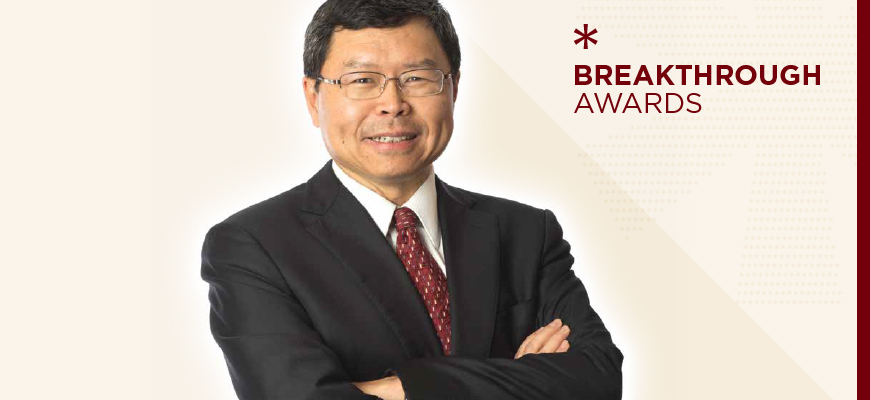
An energetic approach
Mechanical engineering professor leads the way in solid-oxide fuel cell research
Posted on: June 8, 2018; Updated on: June 8, 2018
By Megan Sexton, msexton@mailbox.sc.edu, 803-777-1421
In the eight years Kevin Huang has been at the University of South Carolina, the energy science researcher has established a world-class electrochemical energy materials laboratory and program.
As a mechanical engineering professor and chair of the SmartState Center for Solid Oxide Fuel Cells, Huang’s research is aimed at developing efficient, clean and low-carbon energy conversion and storage technology for a sustainable future. His work is directed toward electrochemical-energy materials science and engineering for fuel cells, rechargeable batteries and gas-separation membranes. Toward this end, he has authored more than 160 peer-reviewed papers and two books and has received 12 U.S.-issued patents, five from his research at USC.
His research has resulted in significant external funding, totaling more than $6.5 million from agencies including the National Science Foundation, the Department of Defense and the Department of Energy. The Advanced Research Projects Agency-Energy award has helped increase USC’s visibility as a major research university.
Mentoring new junior faculty to accommodate the unique departmental culture is extremely important in fostering productive interdisciplinary collaborations among junior and senior faculty.
Kevin Huang
“The ARPA-e award is the first in USC history. That fact that Dr. Huang leads teams from the University of Texas at Austin, University of Maryland, Clemson and Atrex Inc. demonstrates his outstanding leadership in the field,” says Jamil Khan, professor and chair of mechanical engineering in the College of Engineering and Computing.
In 2017 Huang received the Educational Foundation Award for Research in Science, Mathematics and Engineering and in 2015 the College of Engineering and Computing Research Achievement Award. In 2014, he was named a Breakthrough Star by the Office of the Vice President for Research.
Huang also has been actively involved in helping new and junior faculty members to start their programs and labs.
“The department of mechanical engineering is a multidisciplinary academic unit consisting of disciplines in conventional mechanical engineering, nuclear engineering, aerospace engineering and materials science engineering,” Huang says. “Therefore, mentoring new junior faculty to accommodate the unique departmental culture is extremely important in fostering productive interdisciplinary collaborations among junior and senior faculty.”
Share this Story! Let friends in your social network know what you are reading about